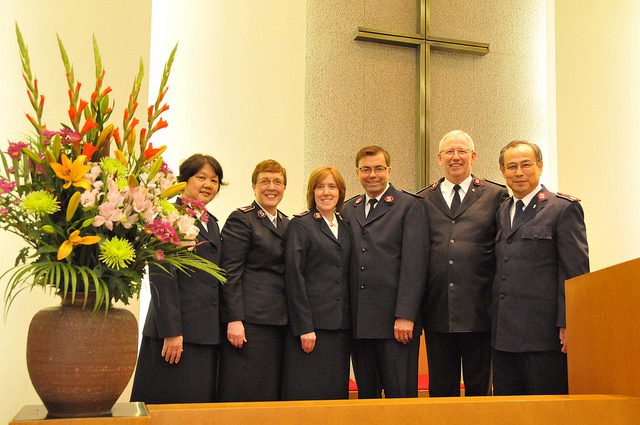In process
by Glen Doss, Major –
Is drug and alcohol intoxication a cheap counterfeit to that deep peace that can only be found through a personal relationship with Christ?
In my work as chaplain of an adult rehabilitation center (ARC), I spend my days with broken men from our streets and penal systems, as well as from suburban homes. Time and again, after these men come to Christ, they have shared with me that in retrospect they recognize their pursuit of drugs and alcohol as a failed quest for a spiritual connection. When they were high, they observe, they were at peace, comfortable; so they kept chasing that high, though it only lasted a few hours. You will often hear alcoholics say, “I’m full of the spirits, man.”
I am by no means the first to suggest this. In correspondence with Bill Wilson, the cofounder of Alcoholics Anonymous, psychiatrist Carl Jung remarked that it may be no accident that we refer to alcoholic drinks as “spirits.” Perhaps, suggested Jung, alcoholics have a greater thirst for the spirit than do other people, but it is all too often misdirected.
In talking with men at the ARC, I frequently make reference to their misdirected quest for God and find that it often opens their eyes, serving as a tool in pointing them toward salvation. As I review the gospel story for them, using colored markers, I have their rapt attention. These spiritually starving, desperate men hang onto my every word. I am continually moved by the seriousness with which their eyes follow my fingers as I lay out each act of the classic drama:
“God made us for himself, to live in fellowship with him. But by putting our personal desires ahead of his, refusing to follow God’s instructions, each of us has sinned and gone astray. By his very nature, God, who is holy and just, can have nothing to do with sin; consequently, our willful disobedience has led to a breach in our relationship with him. Now severed from the one who created us for himself, we find ourselves in a place we were never meant to be. Sensing deep in our hearts that there is an eternal purpose behind things, but unable to connect with that purpose, we feel frustrated, incomplete and empty. Searching for the one who can make us whole, we go looking for God, though often in all the wrong places, such as in drugs or alcohol. A cheap counterfeit of that deeper peace we can find only through a personal relationship with Jesus Christ, these lifestyles lead directly to the chaos and misery of our lives.
“Aware of our dire predicament, God has compassion on us and chooses to do for us what we cannot do for ourselves. As we turn our lives over to him—through the spiritual disciplines of submission, self-examination, confession and repentance—God, as the sinless man Christ Jesus, takes on himself via the cross the punishment that we rightfully deserve, thereby cleansing us of our sins. This miraculous, amazing act, which only he can perform, absolves us of all wrongdoing, freeing us for reconciliation with our Lord. Now we each, by taking the route of the cross, can be restored to a rightful relationship with God, finding finally the peace we have so desperately sought.”
The Bible gives hints of such a universal quest in the hearts of everyone.
From one man he made every nation of men, that they should inhabit the whole earth; and he determined the times set for them and the exact places where they should live. God did this so that men would seek him and perhaps reach out for him, though he is not far from each one of us (Acts 17:26-27 NIV).
He has made everything beautiful in its time. He also has planted eternity in men’s hearts and minds [a divinely implanted sense of a purpose working through the ages which nothing under the sun but God alone can satisfy], yet so that men cannot find out what God has done from the beginning to the end (Ecclesiastes 3:11 AB).
God gave us a gut-level awareness of his existence—perhaps a vague memory of what we were originally meant to be—but because of our separation from him brought on by our sins, that vision is blurred. Yet, until we are reconciled with our creator we remain miserable (Rom 7:24-25a). The philosopher Augustine observed in his spiritual autobiography Confessions, “You have made us for yourself, O Lord, and our heart is restless until it rests in you.”












